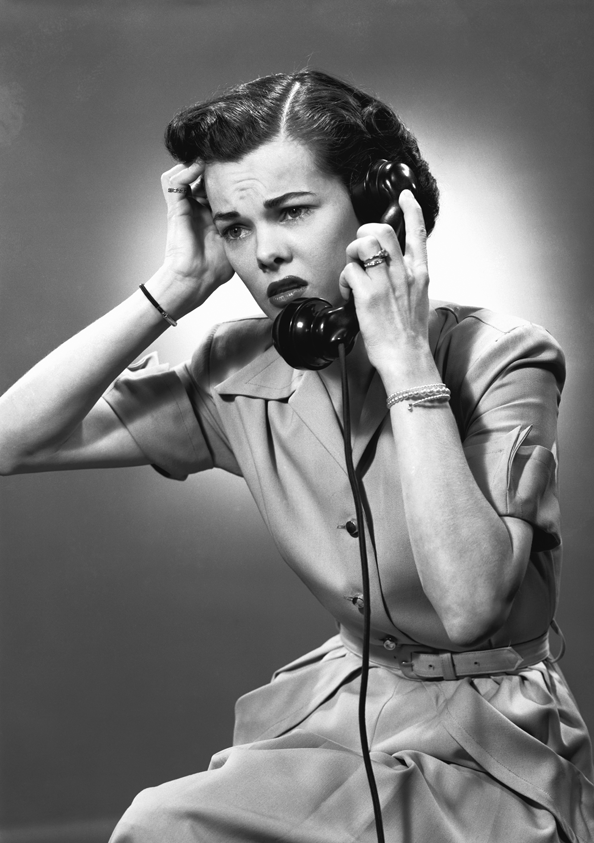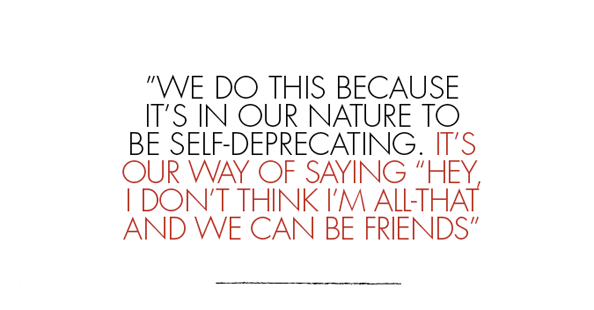We’re all guilty of moaning, groaning and criticising even without being aware of it. In an attempt to change her ways Sarah Garden went a week without saying a bad word (well… she tried). Do you think you would fare any better?
She looks like an albino ostrich,” I typed to my friend who’d sent me an unflattering picture of Tilda Swinton. That was at 8.38am, just 68 minutes into my week of no b****ing.
Before I started this experiment I’d have classed myself at the lower end of the b****-ometer. In fact, so did others. “You won’t find that hard,” they said, “you’re always positive.” I’m ashamed to say that I thought they were right. I don’t complain about mess; if someone trusts me with information, it’s safe; I actually like my job; and I don’t particularly care if anyone dares to wear black and navy together. Different horses for different courses, as my mum always says.
But that doesn’t take into account that being a b**** is practically a tradition. It’s our humour, our form of release and what best friends were made for. In fact, numerous studies show that a good moan alleviates stress and strengthens friendships – yes that’s right, whining is healthy. And that brings me to the first difficulty in my week sans b****ing…
I BONDED WITH PEOPLE LESS
B****ing was how I formed a bond with my stepmother. After spending three years barely acknowledging each other, we went on a family holiday. She was unwell and I begrudgingly dragged my angst-ridden teenaged self to the pool to keep her company. After almost 10 minutes without speaking, she broke the ice with a rude comment about an old man in speedos. I laughed, she laughed, and we went on to spend the next two weeks lying on our sun-soaked pedestals criticising passers by. We’ve been close ever since.
I’d forgotten how important b****ing could be to friendships until I went for coffee with a girlfriend who was having relationship issues. What she needed was a understanding ear to agree with whatever she had to say and throw in the occasional comment like: “Urgh, men are emotionally deranged,” and: “I know exactly how you feel, your husband sounds just like this guy [insert empathetic story here].” What she got instead were words of hope and positivity that just sounded plain patronising. “Maybe he was having a hard day,” I offered, cringing to myself (to be fair, every day must be hard when you’re being a prat).
I FELT STRESSED
This week has shown me that I like to wear my emotions close to the surface and, as a result, am happier for it. If someone does something to upset me, I tell them, we talk about it and move on. I get things off my chest, whether that means venting to a friend about nightmare delays at the airport or asking a roommate to wash their dirty dishes – I’m usually a fairly open, stress-free book. Not being able to do that freely made me highly strung.
On a much more shallow level, I felt I couldn’t join in with friendly banter. I wanted to add to an Oscar Pistorius discussion in the work canteen (if shooting someone four times is an accident then the world has officially lost the plot). I wanted to tell my friend that his new glasses made him look like a malnourished version of Harry Hill. And I wanted to show my cousin a Facebook photo of his ex’s chubby finger in a cheap engagement ring, just to bring some humour to his day. I hate to say it, because b****ing is a terrible hobby, but getting this stuff out feels so good. (Breathes a deep and satisfying sigh of relief).
MY EGO SEEMED INFLATED
Hearing other people’s flaws and confessing our own is a way to level with others, to show that our ego isn’t through the roof and make each other feel comfortable.
In the spirit of being gripe-free and positive, let’s just throw it out there that I (much like my colleagues) get to do very cool things in the name of work. Yet if you overhear someone talking about some press trip to some five-star hotel in some hopelessly chic city, there’s always a “but” – “Oh yes Paris was beautiful, but it rained for three days straight and I didn’t take a jacket.” “Yes I had a fabulous time in Rome, but the airline lost my luggage and I had to wear joggers and a hoodie to a Michelin-star restaurant.”
We do this because it’s in our nature to be self-deprecating. It’s our way of saying: “Hey, I don’t think I’m all-that and we can be friends.” The idea is that by b****ing about our lives, our jobs, and our relationships we won’t make others feel worse about disliking their own. This week I Instagrammed and Facebooked everything cool I’ve been up to, without the slightest hint of deprecation. My friend, who lives in rainy Scotland, left a comment on a picture of me at a beach party simply saying: “You b****”.
Did I manage a week without criticising? No, not even close. However, I did learn a lot about myself. I learned that there are types of b****ing that are okay, and types that aren’t. I will never be the person who discusses friends behind their backs and laughs at others unkindly. But, equally, I don’t want to be the person who shrieks: “Every cloud has a silver lining” when someone needs to vent. Sometimes getting together with friends and having a malevolent chat about that cloud is much more productive than searching for a positive. More often than not, the b****ing turns into laughter – and hey, if that’s not a silver lining, I don’t know what is.
Image: Getty














